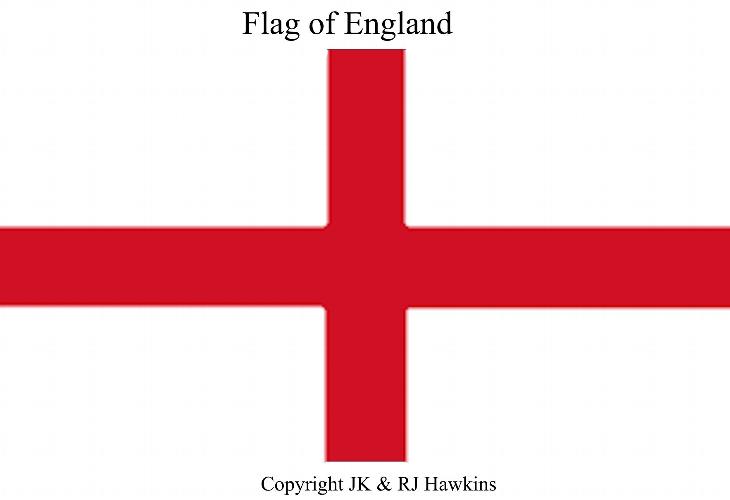Why did England wish to occupy a far away city?
England was going places. When it came to mercantile shipping, England was becoming a major player.
Growth in Trade during the Interregnum
The previous fifty years had seen a huge growth in trade. From the establishment of monopolies such as the East India Company, the colonisation of North America, the development of the banking industry and the creation of investment in stock companies, to the suppression of piracy in English waters, the protective convoys offered by the greatly enlarged English navy, and the protectionist Navigation Act of 1651, many developments increased the profitability of English trade.
Cromwell had set his sights on using his New Model Army and greatly expanded navy to appropriate a slice of Spain's Caribbean trade. When that proved more difficult, more expensive and less lucrative than he had imagined, failing to take Hispaniola, he'd had to recognise Providence was not on his side in this particular venture and he set his eyes on nearer Spanish territories. Allying himself with France he provided Louis XIV with much needed foot soldiers in return for the promise of Dunkirk and Mardyck once captured.
The success of this plan gave England a foothold on the continent of Europe for the first time since Elizabeth I had withdrawn from Le Havre in 1563. Most importantly it meant the end of the Spanish privateers operating from those ports who had preyed on English ships virtually at will.
Along with the defeat of the Dutch Navy and the subsequent favouring of English ships for all foreign trade with England these developments led to a rapid increase in English merchant shipping.
The City of London was riding the crest of a wave and its burgeoning wealth was fuelling further ambition.
Restoration Dowry
When the newly restored King Charles II of England was offered free trade with Portuguese South America rich in sugar, the occupation of the harbour of Bombay on the route to the Oriental Spice markets and Tangier, potential hub of African and Mediterranean trade, the collective eyes of City merchants lit up. All this for the trifling cost of marrying off the notoriously libidinous restored King and promising to send the unwanted remnants of a politicised army away from England, where they would be unable to cause trouble at home, and where someone else was responsible for paying their costs. Luisa de Guzman, Portuguese Queen Regent needed the help of an efficient army and a strong navy to combat Spain's efforts to re-establish control over its smaller neighbour. England seemed to fill the bill, so much so in fact that she was happy to promise the impecunious Charles II a larger cash dowry than had ever been provided for a match. It was a marriage in which the King and the Princess were almost irrelevant.
Many of the wealthy men supporting the deal were the same people who had refused to hand Pym over to Charles I, an act which had sparked the Civil War and the eventual beheading of the King. Now they were seeking to fatten their purses by encouraging Charles I's son to marry a Portuguese princess. No matter that they were republicans – they would welcome the King if he could enrich them, even if it meant sacrificing the ringleaders of republican London; no matter that Catherine of Braganza were a Catholic and they were staunch Protestants.
The promise of free trade with Portuguese South America was sufficient prize with Brazil's sugar plantations worked by slaves their prices undercut those of the Arab world, and had won a large share of the market.
The English East India Company had been envious of the islands of Portuguese Bombay for many years. The colony provided and excellent natural harbour, easily defensible from attacks mounted from the mainland. It benefitted from some trade with areas of India, but also provided a staging post for ships sailing to and from the East Indies.
Tangier could be the key to unlocking the continent of Africa as well as acting as an entrepot staging post on the way to the riches of the Levant and the spices of the Orient.
Powerful people with royal connections who were invested in the Company of Royal Adventurers of England Trading with Africa, Royal Merchant Adventurers, people who thought to form a new Morocco Company to lobby for a monopoly on African trade, and indeed anyone with a finger in the pie of international trade, could only support the marriage and the acquisition of Tangier.
Possibly even more important than these considerations was the removal from English soil of a large group of experienced soldiers who had fought against Charles' father, deposed him and supported his execution. As long as these people were in the country it is doubtful that Charles and his family, and any Royalist, could feel entirely comfortable and safe. So sending several regiments of professional fighting men to Portugal and Tangier may well help ensure a peaceful reign for the returning King and Royal bridegroom.
Fact Check
Main Sources:
Hutton R., The British Republic 1649-1660 (New York: St Martins Press: 2000)
Haley, K.H.D., Politics in the Reign of Charles II (Oxford: Basil Blackwell 1985)
